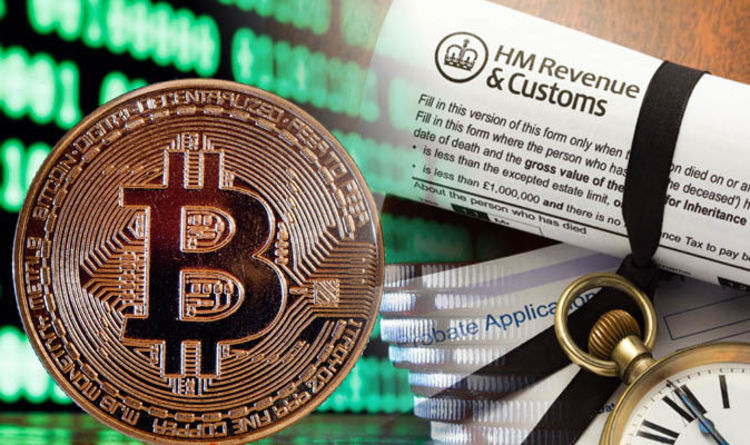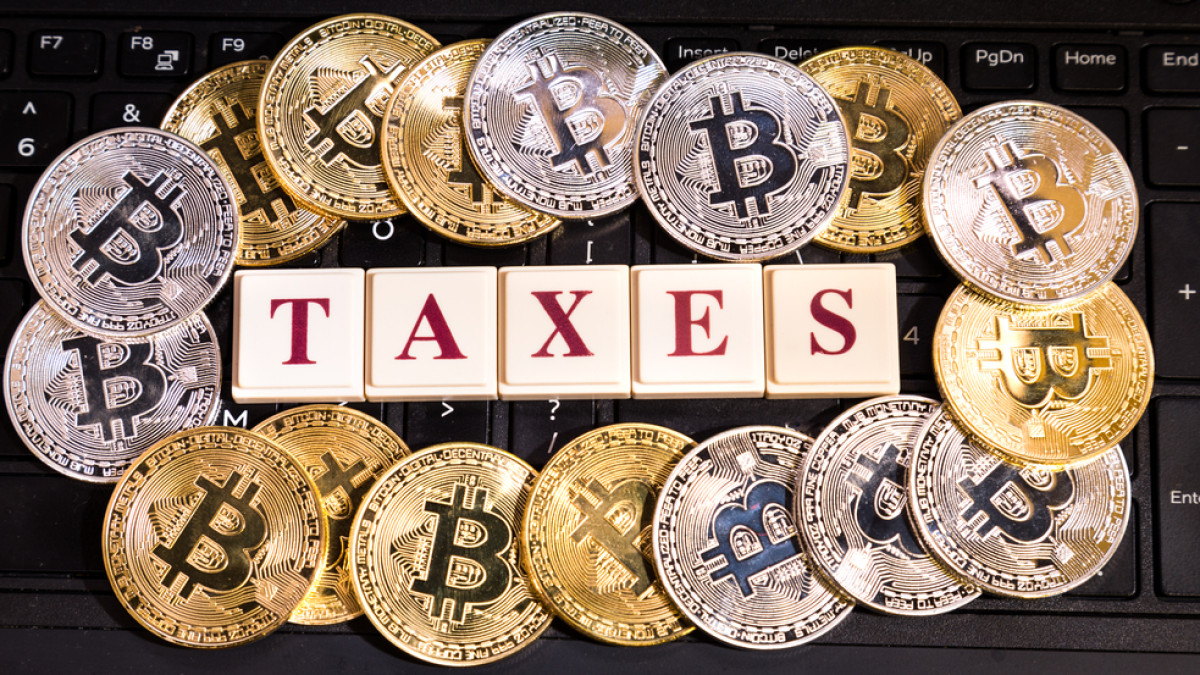So, governments are now dipping their hands into the crypto cookie jar, taxing Bitcoin, Ethereum, and the like.
There are seven solid reasons behind this move.
First, it’s a fresh revenue stream, like the usual taxes we’re all used to.
Then, there’s the biggie – keeping the rollercoaster crypto market in check and ensuring investors (like you and me) stay safe.
But there’s more.
These taxes are a way to sniff out and slam the brakes on shady stuff like money laundering.
They also crank up the transparency dial on all those cryptic crypto dealings, keeping things fair and square.
Plus, they help crypto play nice and fit into the global financial playground.
And finally, think of these taxes as the guardrails on the crypto highway, steering growth in a way that doesn’t end up in a wreck.
No one loves taxes, but they’re becoming more of a help than a hassle in crypto.
Let’s dive into these reasons and get the full scoop on why your digital dollars are getting some tax attention.
Reason 1: Generating Revenue
Think of the government as a huge store that needs money to keep running.
Where does it get this cash?
Taxes!
Like sales tax on your new sneakers, the government is now looking at crypto for extra money.
Cryptocurrencies have become super popular, and many people profit from them.
When people earn money, whether from a job, selling lemonade, or trading Bitcoin, the government usually wants a part of it as tax.
This tax money is super important.
It helps the government fix roads, run schools, and provide health services.
With more and more people buying and selling digital coins, the crypto money is huge.
So, the government sees this as a chance to collect taxes and use that money for important stuff that helps everyone.
It’s not about taking away from people’s earnings but about getting a fair share to keep the country running smoothly.
This is why taxing crypto is becoming a big deal for governments everywhere.
New to crypto trading? Know What is contract trading in crypto?
Reason 2: Regulating the Market
Have you ever played a game where there were no rules?
It can get pretty wild, right?
That’s what the crypto market was like before governments started stepping in.
By taxing cryptocurrencies, the government is bringing some much-needed rules to the game.
This helps keep the market stable and fair for everyone.
Imagine if prices of things like video games shot up and down wildly every day.
That would make it hard to decide when to buy, wouldn’t it?
The same goes for crypto.
Prices can jump around without some control, making it risky and unpredictable.
Taxes help the government keep an eye on the market, almost like a referee in a sports game.
They make sure things don’t get too crazy.
This regulation is good for crypto traders, too.
It can make people feel safer about putting their money into crypto.
When the market is more stable, it’s less like gambling and more like a smart investment.
Plus, a regulated market attracts more serious and safe investors, which can help the market grow healthily.
So, by taxing crypto, the government is trying to make the digital money world a safer and steadier place to trade.
Reason 3: Protecting Investors
Investing in crypto can be exciting, like riding a rollercoaster. But just like any ride, it needs safety measures.
This is where the government steps in with taxes.
Taxing crypto helps protect people who invest in it.
Here’s how: When you put money in crypto, you’re taking a risk.
The price could increase, making you a winner, or it could drop, and you could lose cash.
It’s a bit like betting on a race. The government wants to ensure this betting game is fair and not rigged.
They can spot and stop shady deals by examining crypto through taxes.
Taxing crypto also means keeping records.
When people report their crypto earnings for tax, the government clearly understands what’s happening.
This way, they can catch anyone trying to scam investors.
It’s like having a hall monitor who ensures no one’s breaking the rules.
So, while paying taxes on your crypto might feel like a drag, it’s a way to keep your investments safer.
It’s the government’s method of putting seatbelts and helmets on the wild ride of crypto investing.
Recommended Read: 11 ways to buy and sell crypto without paying taxes
Reason 4: Combating Illegal Activities
Cryptocurrency isn’t just used for buying or investing; sometimes, it’s used for not-so-good things.
This is where the government’s role in taxing crypto becomes really important.
By keeping track of who’s trading and how much, they can help stop illegal activities such as anti-money laundering.
Think of crypto like arcade tokens.
Just like you can use these tokens to play games, people can use crypto for various things.
But sometimes, people use it to hide money they got through illegal ways, like stealing.
It’s easier to hide this money with crypto than with regular cash.
When the government taxes crypto, they make everyone report their transactions.
This makes it tough for bad guys to hide what they’re up to.
The government can look at these records and catch people using crypto illegally.
This can include money laundering, when someone tries to make illegal money look legal.
So, taxing crypto isn’t just about making money for the government.
It’s also a big tool in the fight against crime.
Reason 5: Promoting Transparency
Transparency means being clear and open.
In crypto, this is super important.
The government wants to ensure everything in the crypto market is as clear as a sunny day.
That’s where taxes come in.
Unlike a regular bank account, it’s not always easy to see who owns or trades crypto with whom.
But when the government taxes crypto, it’s like turning on a big, bright light in a dark room.
Everyone has to report their crypto — how much they have, buy, or sell.
This is good for everyone. It makes sure no one’s doing anything sneaky with their digital money.
Like in school, when a teacher asks everyone to show their work.
It helps prove everyone’s playing by the rules.
By promoting transparency, the government helps build trust in the crypto market.
It shows that this isn’t just a playground for shady deals; it’s a legitimate place to invest and do business.
So, in a way, taxes help clean up and grow the crypto world, making it a safer place for everyone.
Recommended Read: Who regulates bitcoin in the US?
Reason 6: Aligning with Global Standards
Different countries try to play by similar rules in the big world of money.
This helps everyone get along and makes trading between countries smoother.
When it comes to crypto, taxing it is a way for governments to match up with these global standards.
Think of it like a soccer game.
Each team may be from a different place, but they all follow the same game rules.
This way, everyone knows what’s allowed and what’s not, making the game fair and fun.
In the same way, when countries tax crypto, they’re making sure they’re playing the same financial game as everyone else.
This is important because crypto isn’t just limited to one country. It’s global.
Someone in Japan might be trading with someone in Canada.
So, having similar rules about taxes helps everyone understand each other better.
By taxing crypto, governments are showing that they’re keeping up with the times and playing by the rules of the global financial game.
This helps build trust and cooperation between countries in crypto and beyond.
However, country-specific cryptocurrency exchanges like crypto leverage trading platforms for the USA also exist.
So, users within a country can trade with each other, and the government can keep track of all the transactions.
Reason 7: Fostering Responsible Innovation
Crypto is like the new kid on the block in money.
It’s exciting and full of possibilities.
Governments want to make sure this new kid grows up right.
That’s where taxes come in. They help make sure that the growth of crypto is responsible and safe.
When the government taxes crypto, it’s like setting up rules in a playground.
These rules don’t stop the fun; they ensure everyone plays safely and respects each other.
The same goes for crypto. Taxes help guide the way crypto grows.
They encourage companies and traders to think carefully and make smart, safe choices.
This responsible growth is important. It means people can trust crypto more, just like they trust banks.
It helps the whole crypto world become a place where not just a few but everyone can play and benefit.
When innovation is responsible, it grows stronger and lasts longer.
So, taxing crypto isn’t just about the government collecting money.
It’s about helping crypto grow in a way that’s good for everyone.
It ensures that this new, exciting world of digital money is where we can all play, trade, and grow safely.
Recommended Read: 10 ways to legally avoid paying crypto taxes
Conclusion: The Future of Crypto and Government Interaction
As we wrap up, it’s clear that the crypto and government relationship is like a dance.
Both are learning how to move together.
Taxing crypto is a big step in this dance, showing that governments are taking this new digital money seriously.
In the future, we can expect more rules and maybe even new ways of handling crypto and regulated cryptocurrency exchanges.
But don’t worry, this doesn’t mean the end of fun with digital money.
It’s like adding guardrails to a fast-moving train. The train still zooms ahead, but now it’s safer for everyone.
Governments getting involved with crypto is a sign that it’s becoming a big player in money.
It’s growing up and getting more accepted every day.
For us, the crypto traders and users, we need to stay informed and play by the rules.
As long as we do that, the future looks bright.
Crypto is changing, and we’re all a part of this exciting journey.
Let’s stay tuned and see where this road takes us!




